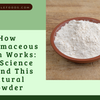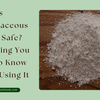Organic Sugar in Sustainable Living
- by K V
Organic Sugar in Sustainable Living
When it comes to living a more sustainable lifestyle, the foods we choose play a big role. One often overlooked ingredient is sugar. While sugar may seem like a small addition, opting for organic sugar over conventional can have a positive impact on both the environment and your health.
What is Organic Sugar?
Organic sugar is sugar that has been grown without the use of synthetic pesticides, fertilizers, or other artificial chemicals. These crops are cultivated following organic farming principles that promote soil health, biodiversity, and eco-friendly practices. The most common forms of organic sugar are:
Cane Sugar: Made from the juice of organically grown sugarcane plants.
Coconut Sugar: Produced from the sap of coconut palms.
Why Choose Organic?
There are several key reasons why switching to organic sugar supports sustainable living:
Avoiding Harmful Pesticides
Conventional sugarcane and sugar beet crops are typically sprayed with synthetic pesticides to kill insects, weeds, and other pests. These chemical pesticides can contaminate soil, and water sources, and end up as residues in the final sugar product.
Organic farming utilizes natural methods like crop rotation, beneficial insects, and hand weeding to control pests. This eliminates the need for toxic pesticides that are harmful to the environment and human health.
Reducing Synthetic Fertilizer Use
Most non-organic sugarcane relies heavily on synthetic nitrogen fertilizers derived from fossil fuels. The manufacture and use of these fertilizers generate greenhouse gas emissions, contributing to climate change.
Organic farmers fertilize their crops using natural fertilizers like manure, compost, and cover crops that replenish the soil's nutrients in an eco-friendly way.
Promoting Soil Health
The pesticides and chemicals used in conventional farming degrade soil quality over time. Organic methods focus on building healthy, nutrient-rich soil through sustainable practices. This includes techniques like rotating crops, using cover crops, and applying organic matter back into the soil. Healthy soils are better able to retain water and nutrients, enhancing crop quality while reducing erosion and runoff.
Protecting Biodiversity
The heavy use of pesticides on conventional sugar crops harms more than just the targeted pests. These chemicals can also kill beneficial insects like bees and butterflies that are vital for pollination.
Organic farming supports biodiversity by providing a habitat for a variety of insects, birds, and other wildlife to thrive alongside the crops. This creates a healthier, more balanced ecosystem.
Avoiding GMOs
Most conventional sugarcane and sugar beets grown today are genetically modified (GMO) to be resistant to certain pesticides. Organic certification prohibits the use of genetically engineered seeds or crops. While the full impacts of GMOs are still being studied, many consumers prefer to avoid them due to concerns over potential health and environmental risks.
Making the Switch
As awareness around sustainable food choices grows, more companies are offering organic sugar options. You can find organic cane sugar, beet sugar, and coconut sugar in many major supermarkets.
Organic sugars can be used for everything from sweetening coffee to making jams and baked goods. The taste is very similar to non-organic sugar, so you get all the sweetness you crave without the environmental toll. Coconut sugar has a slightly richer, caramel-like flavor that works well in many recipes.
For those looking to further reduce their sugar intake, organic sugars like coconut sugar or cane sugar can serve as healthier, unrefined alternatives to conventional white sugar.
Is Organic Sugar the Perfect Sweetener?
While organic sugar is a clear step towards sustainable living, it's important to remember that all sugar, organic or not, should be enjoyed in moderation. The World Health Organization (WHO) recommends limiting added sugar intake to less than 10% of your daily calorie intake. A balanced diet that limits added sugar intake, regardless of its source, is key to good health.
Every Bit Counts
Making the switch to organic sugar is an easy step anyone can take towards living more sustainably. While it may seem like a small change, when multiplied across households, it can make a real difference for the planet.
Choosing organic sugar helps reduce pollution from pesticides, supports sustainable farming practices, and protects natural resources and wildlife habitats. So go ahead and enjoy your sweet treats guilt-free, knowing organic sugar is the sustainable choice.
- Posted in:
- blog
- maven wholefoods
- natural foods
- organic foods
- Organic Sugar
- sugar
- Vegan
- Vegan food
- whole foods





